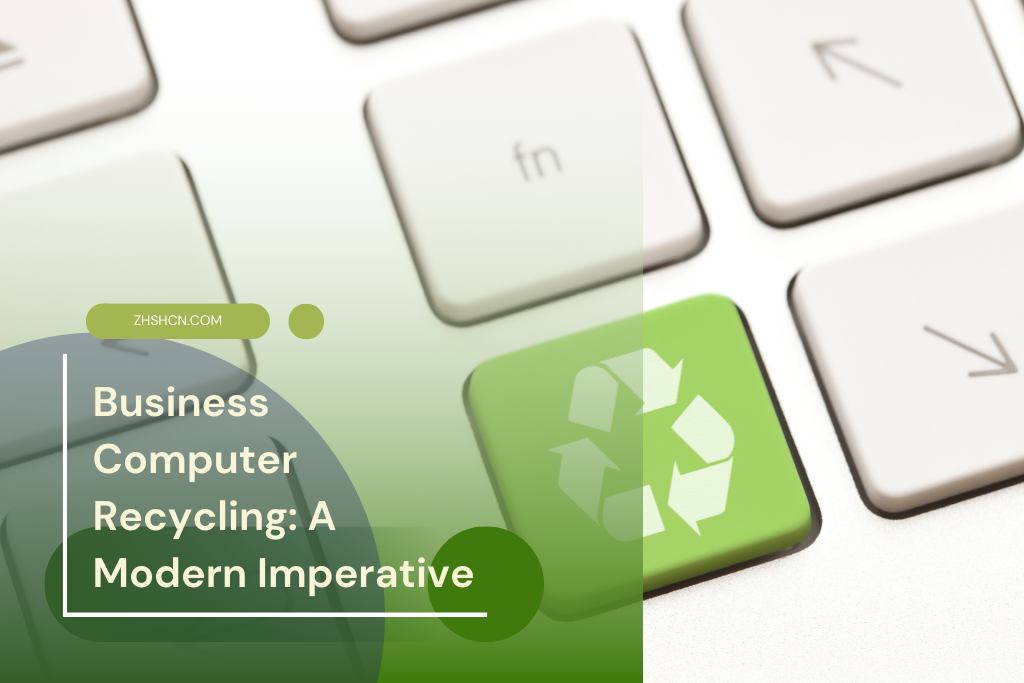In today’s technologically driven business landscape, the need for responsible disposal and recycling of old computers and electronic equipment has never been greater. Business Computer Recycling is not just an ethical choice but a necessity to ensure the sustainability of our environment and compliance with legal requirements. This article sheds light on the importance of recycling computers in the business sector, the process involved, and how organizations can effectively implement recycling programs.
Key Takeaways
- Understanding the significance of computer recycling in the business realm.
- Steps involved in the recycling process.
- How to choose a reliable recycling partner.
- Ensuring data security during the recycling process.
- Legal compliance and certifications in business computer recycling.
Understanding the Significance
Recycling computers and other electronic devices in the business sector is crucial to preventing harmful e-waste from polluting the environment. Companies generate a significant amount of e-waste, and responsible recycling can help in recovering valuable materials, reducing the carbon footprint, and supporting the local economy by creating jobs in the recycling industry.
The Business Computer Recycling Process
The recycling process begins with the collection and transportation of old computers to a recycling facility. At the facility, computers are sorted, dismantled, and the materials are separated for recycling. Specialized recycling companies like Liquid Technology provide a glimpse into the process of demanufacturing a server to prepare a computer for recycling.
Collection and Transportation
The first step involves collecting the old computers and transporting them to the recycling facility. This can be done through scheduled pickups or drop-off centers.
Dismantling and Material Separation
Once at the recycling facility, trained personnel dismantle the computers and separate the materials. These materials are then categorized and prepared for recycling.
Choosing a Reliable Recycling Partner
Selecting a reliable recycling partner is crucial to ensure that the recycling process is conducted in a compliant and environmentally friendly manner. Companies should look for recycling partners with necessary certifications and a proven track record in handling e-waste responsibly.
Data Security Concerns
Data security is a paramount concern when recycling old computers. It’s essential to ensure that all data is thoroughly wiped from the devices before they are recycled. Employing a trustworthy recycling partner can help in ensuring data security.
Legal Compliance and Certifications
Adhering to legal compliance and obtaining necessary certifications is crucial in business computer recycling. This includes compliance with laws like the Resource Conservation and Recovery Act (RCRA) and certifications like R2 or e-Stewards.
This section of the article elaborates on the importance of computer recycling in the business sector, outlines the recycling process, and discusses how to choose a reliable recycling partner, ensuring data security, and legal compliance in business computer recycling.
In the next part, we will delve into how organizations can effectively implement recycling programs, discuss the benefits of business computer recycling, and address frequently asked questions on the topic.
Implementing Effective Recycling Programs
A systematic approach towards business computer recycling involves the establishment of a well-structured recycling program within the organization. Here’s how to go about it:
- Policy Development: Draft a clear recycling policy outlining the procedures for disposal and recycling of old computers.
- Partner with a Certified Recycler: Engage with a certified recycler to ensure that the recycling process is handled responsibly and in compliance with legal requirements.
- Employee Training: Train employees on the importance of recycling and how to follow the company’s recycling policy.
- Regular Auditing: Conduct regular audits to assess the effectiveness of the recycling program and make necessary improvements.
By following these steps, businesses can create a robust recycling program that not only adheres to legal standards but also contributes to environmental sustainability.
Benefits of Business Computer Recycling
Environmental Benefits
- Resource Conservation: Recycling computers allows for the recovery of valuable materials like metals, plastics, and glass, which can be reused to manufacture new products.
- Hazardous Waste Management: Proper recycling prevents hazardous materials found in computers from polluting the environment.

Economic Benefits
- Cost-Savings: By refurbishing and reusing old computers, businesses can save on the costs of purchasing new equipment.
- Job Creation: The recycling sector creates job opportunities, thus contributing to the economy.
Data Security
- Data Destruction: Reliable recyclers provide data destruction services to ensure that sensitive information is securely erased from the devices.
Case Studies
Examining real-world examples provides insights into the effectiveness of computer recycling in the business realm. Companies like Dell and HP have robust recycling programs that serve as exemplary models for other businesses. Their commitment to responsible recycling has not only reduced e-waste but also enhanced their brand image.
Innovations in Business Computer Recycling
The field of business computer recycling is evolving with new technologies facilitating more efficient recycling processes. Innovations like automated sorting and advanced material recovery techniques are paving the way for more effective recycling programs.
Frequently Asked Questions
What materials can be recovered from recycled computers?
A variety of materials including metals like aluminum and copper, plastics, and glass can be recovered from recycled computers.
How are data storage devices destroyed or wiped clean?
Data storage devices are either physically destroyed or the data is wiped clean using specialized software.
What is the cost associated with recycling computers for a business?
The cost can vary depending on the recycling service provider, the volume of computers to be recycled, and the location of the business.
In this part of the article, we have explored the steps involved in implementing an effective recycling program, the benefits of computer recycling, and some real-world examples of successful recycling initiatives. The FAQs section provides answers to common questions regarding business computer recycling, addressing concerns about material recovery, data destruction, and the costs involved.
